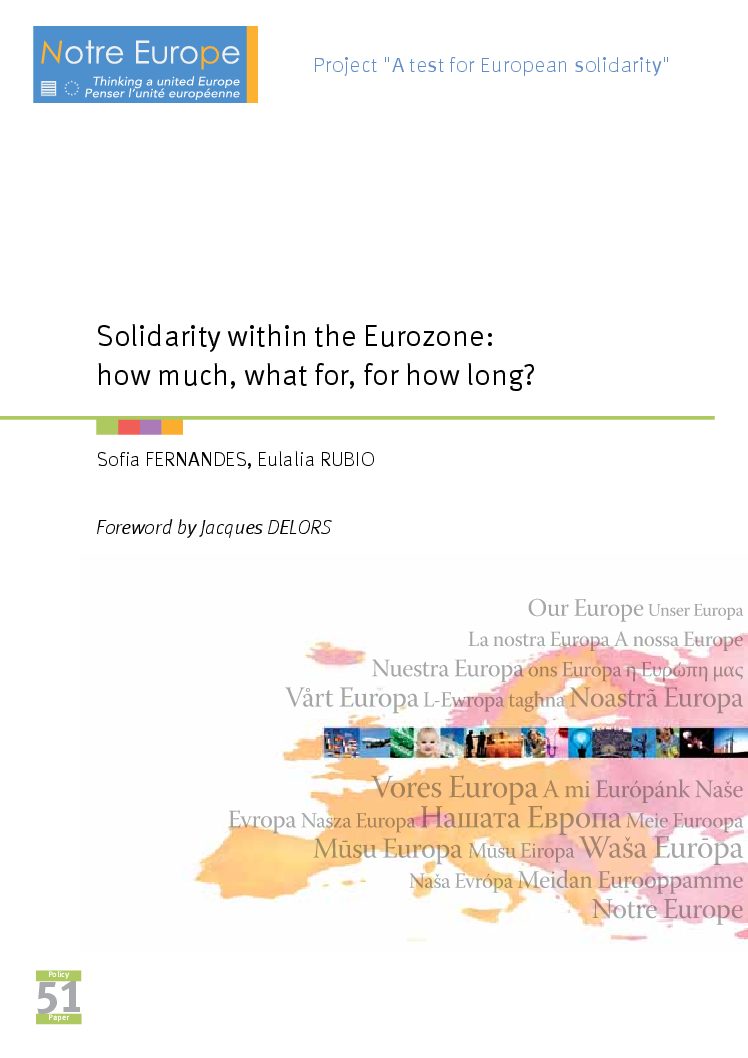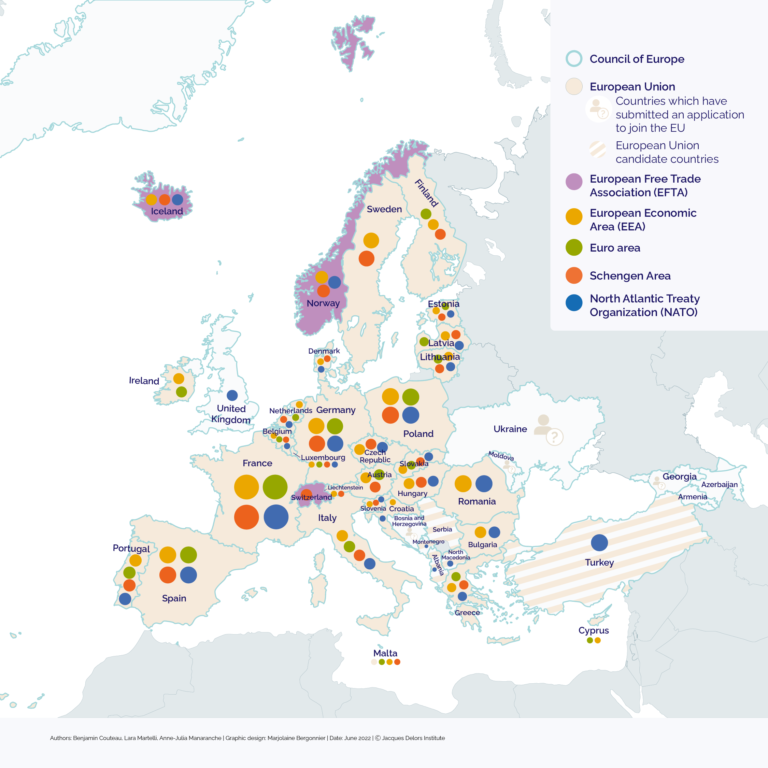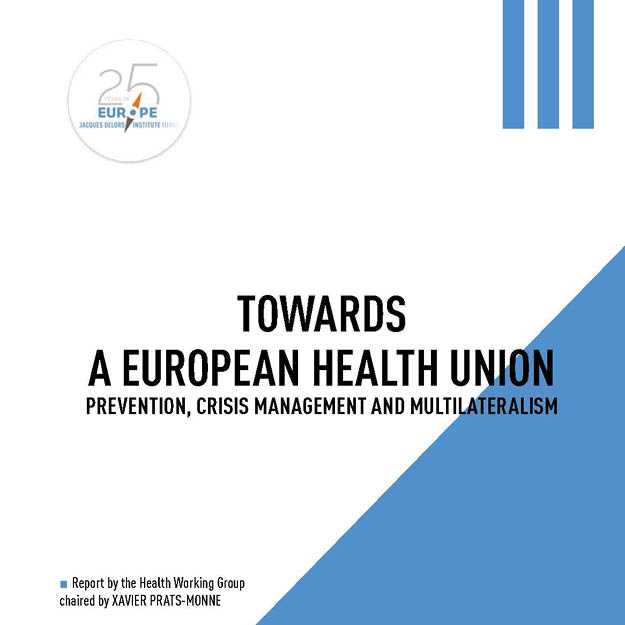Policy Paper 51
Solidarity within the Eurozone: how much, what for, for how long?
As Greece is about to benefit from a second European bailout plan, Sofia Fernandes and Eulalia Rubio propose clarification of the debate on the exercise of solidarity within the EMU, in a Policy Paper published by Notre Europe. They treat at the same time the short term issues – a way out of the crisis – and the long term ones – the reform of the EMU.
The first ten years of EMU passed by with no major debate on the solidarity implications of creating a common currency. Since 2010, however, the Eurozone debt crisis has forced member states to make some steps in the exercise of solidarity that were unimaginable just some years ago. This has prompted a sharp debate on what solidarity means in the context of the EMU and how much solidarity is needed to get out of the crisis.
SUR LE MÊME THÈME
ON THE SAME THEME
PUBLICATIONS
The war in Ukraine:
what are the consequences for European organisations?

After Brexit, euro-denominated derivatives transactions should leave the City

TOWARDS A EUROPEAN HEALTH UNION

MÉDIAS
MEDIAS
Naufrage en Grèce: des élus prônent une opération européenne de sauvetage en mer

Elections en Grèce : le pays se désendette à un rythme spectaculaire


















